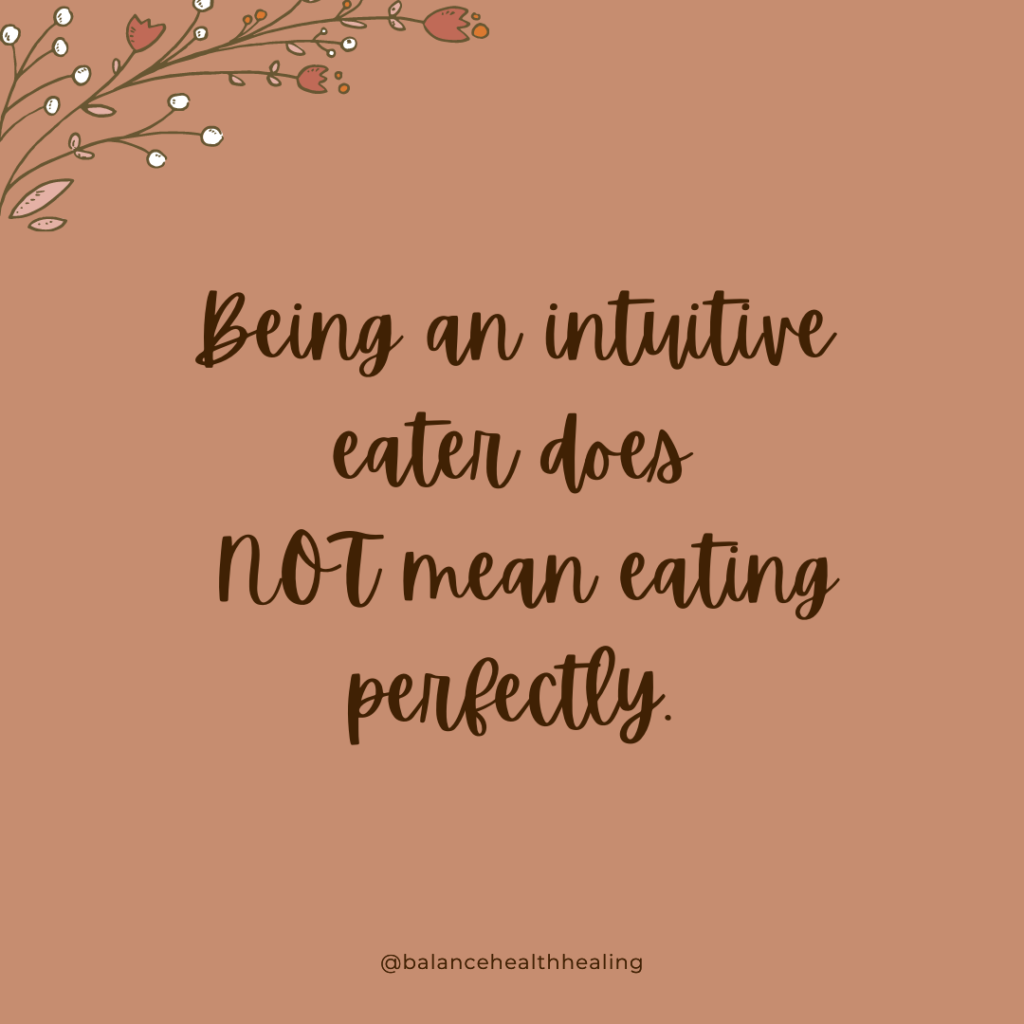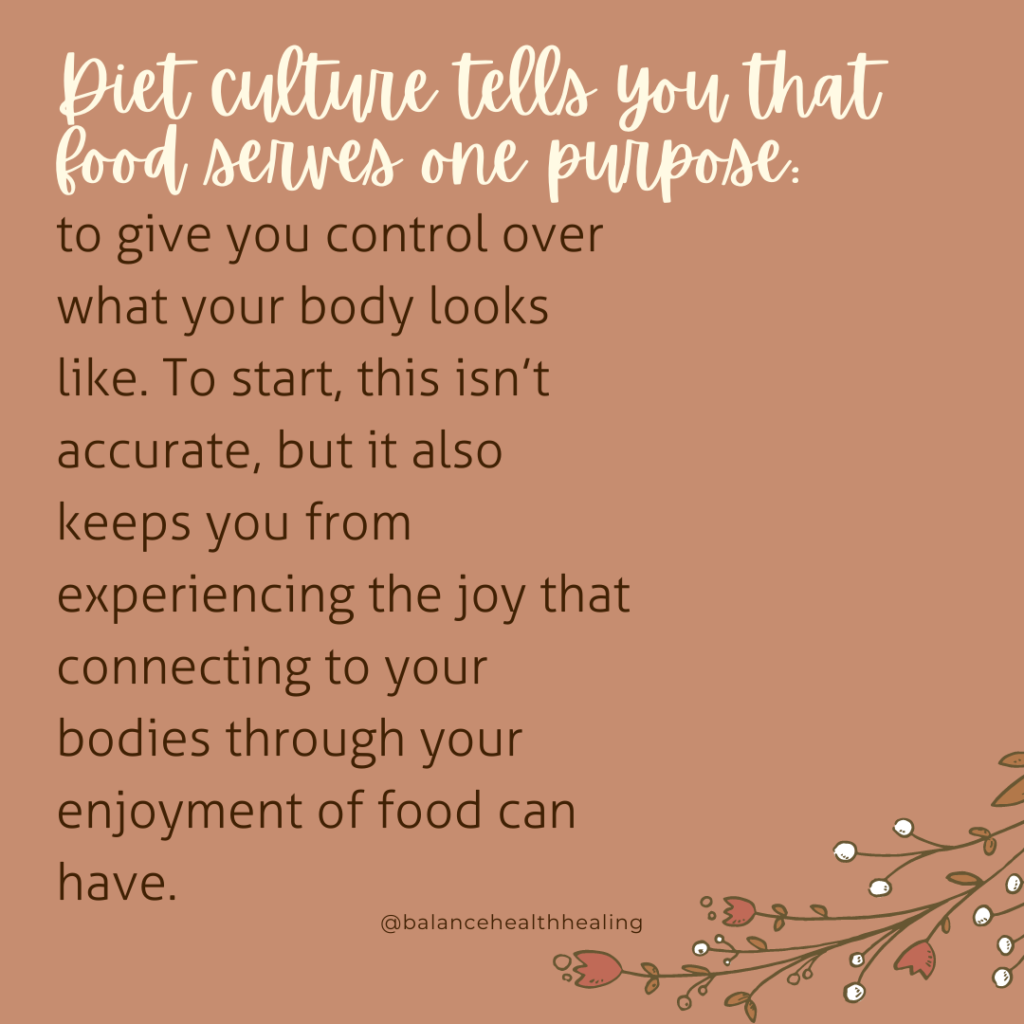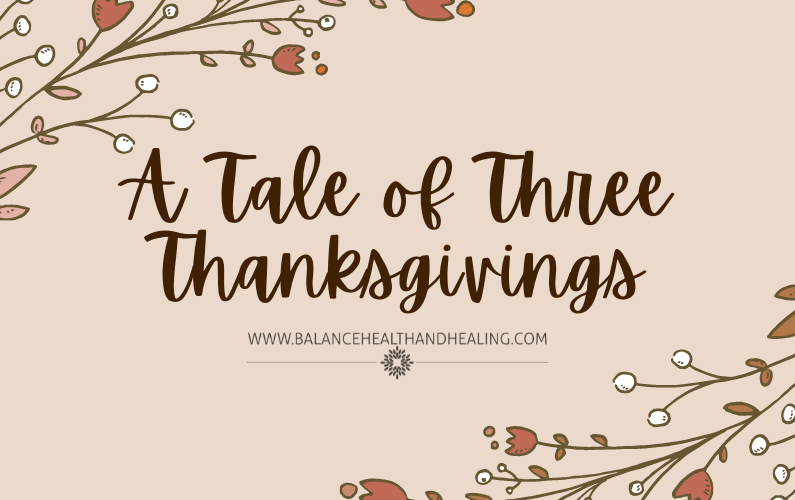Thanksgiving is right around the corner. I have some really excellent memories of cozy family dinners around the table, taking turns saying one thing we’re grateful for while my mom gets sappy and sentimental. However, I know that Thanksgiving often spurs on a variety of emotions for most people, especially if you are going through recovery. Do you look forward to the large meal, gathered around with friends and family? Do you dread eating in front of so many people? Are you concerned about diet talk? Do you worry Thanksgiving dinner will feel like an open invitation for others to comment on your food choices? Are you excited to celebrate all the people, places, and experiences that you’re most grateful for? Are you anxious about spending so much time with family or in-laws? My guess is your feelings are probably a mixture of a few of these. Even for me, Thanksgiving can be both an exciting and stressful time and I try to tactfully manage family, food, and celebration.
 To give some more context around Thanksgiving and recovery, I would like to present three totally made-up vignettes. As you read through these vignettes, I want you to guess which person has a peaceful and intuitive relationship with food. Sound okay? Great. Let’s get started.
To give some more context around Thanksgiving and recovery, I would like to present three totally made-up vignettes. As you read through these vignettes, I want you to guess which person has a peaceful and intuitive relationship with food. Sound okay? Great. Let’s get started.
Callie spends Thanksgiving at her grandmother’s house. Her grandma is aging and doesn’t have very much energy these days. Callie’s grandma makes the most amazing pumpkin pie and although she was tired, was able to make these pies for the family dinner. Callie enjoys her meal, going back for seconds to get a little more of her favorite items. By the time dessert rolls around, Callie is noticing that she is feeling a little overly full but decides to have a piece of pumpkin pie and chat with her grandma about the way she makes it and all of the secret ingredients. Callie is left feeling overly full but continues to have a good time with her family. She eats breakfast the next day and looks forward to leftovers for lunch.
Tara spends Thanksgiving with her in-laws. She doesn’t get along with them very well but is grateful to see her little nieces and nephews. When Thanksgiving dinner rolls around she doesn’t feel very hungry, maybe because she feels anxious about what her mother-in-law thinks about their most recent car purchase. Tara eats a few items at dinner but realizes she doesn’t like ham and turkey much anyway. After dinner, she talks with her partner about the anxiety she has been feeling. They process it together and Tara makes her way back to the kitchen to have a post-dinner snack, since she didn’t eat much during the formal family meal and is noticing she isn’t feeling totally satisfied. She eats until she feels full and enjoys the apple crisp her husband made for dessert later that evening.
Sophia spends Thanksgiving with her roommate’s family. Her roommate’s family culture is very different from what she’s used to. However, Sophia feels comfortable with the family and excited to spend time with them. When dinner rolls around (which they do around lunch time in this family), the family eats enthusiastically. The mom encourages Sophia to eat more and more. Sophia, already recognizing that she’s feeling really satisfied, politely indicates to the family that she is full. In this family, they have dessert with the meal, and Sophia decides she doesn’t want a piece of pie. Later, while playing games with the family, Sophia recognizes she’s feeling hungry again and eats a slice of pie with extra whipped cream.
So, could you spot the person that has a peaceful relationship with food? Surprise! They ALL have a very healthy and peaceful relationships with food! I use these little vignettes as good examples of the variety of ways that intuitive eating could show up over the holidays. Being an intuitive eater does NOT mean eating perfectly. Being an intuitive eater is more about the process of honoring your body, which can mean trusting your body when you eat past fullness and honoring your hunger even if you have eaten recently.
Having a peaceful relationship with food goes far beyond simply eating when you’re hungry and stopping when you’re full. Food can serve many purposes. When stuck in disordered eating and diet culture patterns, food is often a means to an end. However, when you are able to break out of that diet mentality, the purpose of food shifts dramatically. Sometimes the purpose of food for me is energy, like that midday snack or eating a nice breakfast before taking a test. Sometimes the purpose of food for me is creativity, like when I experiment with new recipes or perfectly plate a meal. Sometimes the purpose of food is connection, like sharing a holiday meal together or making an old family recipe (like Callie).
you’re hungry and stopping when you’re full. Food can serve many purposes. When stuck in disordered eating and diet culture patterns, food is often a means to an end. However, when you are able to break out of that diet mentality, the purpose of food shifts dramatically. Sometimes the purpose of food for me is energy, like that midday snack or eating a nice breakfast before taking a test. Sometimes the purpose of food for me is creativity, like when I experiment with new recipes or perfectly plate a meal. Sometimes the purpose of food is connection, like sharing a holiday meal together or making an old family recipe (like Callie).
Diet culture tells you that food serves one purpose: to give you control over what your body looks like. To start, this isn’t accurate, but it also keeps you from experiencing the joy that connecting to your bodies through your enjoyment of food can have. That’s something I am not willing to miss out on. The freedom that comes from putting in the hard work of challenging disordered thoughts about food is absolutely worth it!
So, as the holidays approach, remember that there are many good ways to be an intuitive eater. Lean into trusting your body to process the food you eat and remember it deserves to be fed and nourished, no matter if you ate a holiday meal the night before. Find various purposes of food and remember that it might go beyond “fuel” or “energy.” Happy Thanksgiving! I’m so grateful for my body and for the chance to be a witness of the healing and growth of recovery. I hope this Thanksgiving can be a peaceful one for you as you remember the things you’re grateful for.

